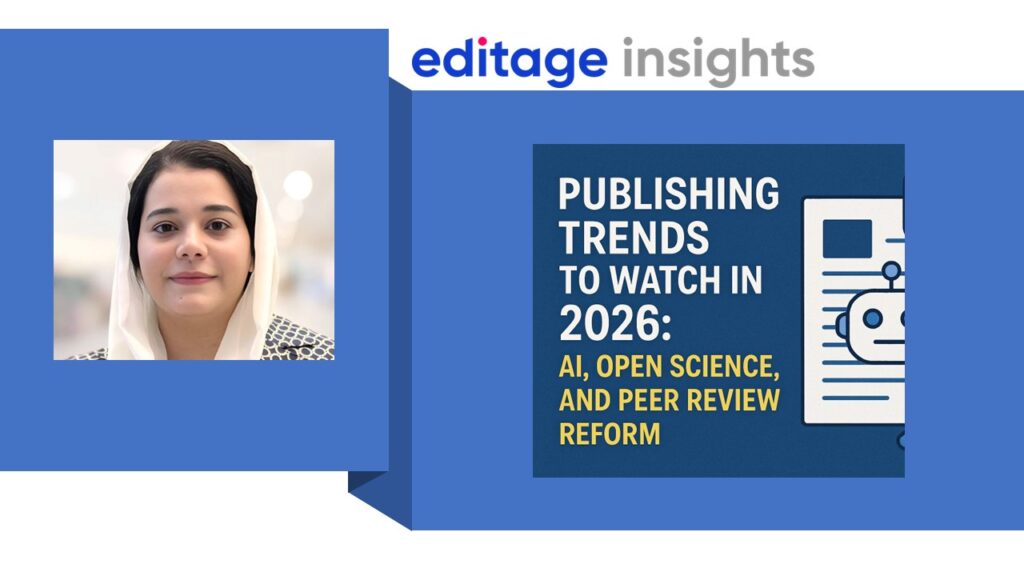Using AI-powered tools effectively for academic research

Artificial intelligence (AI) is shaking up many industries, with professionals increasingly realizing the benefits of using AI to improve efficiency and productivity. Academic research is no exception – whether it is used for writing, editing, or citing research papers, AI tools can help support research processes.
Amidst rising concerns about the use of AI in academia, researchers shouldn’t disregard the advantages and opportunities that AI presents to considerably improve the quality of research.
As such, researchers should be aware of AI’s advantages as well as the problems that can occur when using AI tools for academic research.
AI in academic research: An overview
Using AI tools to acquire research knowledge and literature review
Using AI for research planning and study design
Using AI for peer review assistance
The benefits and opportunities of using AI in academic research
Pitfalls of using AI for academic research
AI in academic research: An overview
The advent of AI has meant a revolution in academic writing. Researchers can use AI tools for writing a research grant, a book, or even academic journal articles.
There are also some AI-powered tools that can help researchers to edit their articles and use grammatically correct English.
Analyzing data from the experiments conducted is an important aspect of research. AI-powered data analysis tools can help researchers analyze data more efficiently and make the process free of any bias.
In addition to writing and analyzing data, researchers spend countless hours reading scientific literature for citing in their articles. Keeping up with literature can be hard considering that millions of new research articles are published every year. Researchers can save hundreds of hours by using AI tools that can read complex papers and summarize them.
Researchers can also make use of AI tools for citing literature and keeping their sources organized.
Using AI tools to acquire research knowledge and literature review
AI-powered research tools for reading, annotating, and note-taking can make the process of acquiring knowledge considerably more efficient. Such tools can provide the user excerpts from the literature source, with the most relevant information highlighted, and help one decide whether an article is worth reading.
This can help the user quickly locate relevant information in research articles, determine which paragraphs to read in-depth, and compile notes on the subject.
To use such an AI-powered tool most effectively for research, the users should critically assess the output without accepting it as ‘the truth’ and read original text instead of simply relying on AI-generated summaries.
Using AI for academic writing
Distilling complex information from numerous sources and explaining it along with one’s original ideas is an important aspect of good academic writing. Effective note-taking systems that can keep track of the source information and help avoid plagiarism are critical for this process.
AI-powered tools not only help take and organize notes relevant to be included in one’s write-up, but also help the researcher write an article effectively. Some AI tools also help the researcher paraphrase sentences from the notes they have taken. Such tools are particularly important and helpful for researchers from non-English speaking countries.
To make the most effective use of AI tools for academic writing, researchers must not solely rely on AI for note-taking or writing. Researchers can also practice more ethical writing by reformulating the paraphrased content from AI rather than copy-pasting the paraphrased content.
Using AI for research planning and study design
AI-powered experimental design tools involve the use of machine learning algorithms to optimize parameters. The automation of experimental design processes can help researchers cut down the time and effort to design studies, freeing up more time for data analysis and interpretation. Such AI tools can also reduce human errors as well as R&D costs.
To use AI tools effectively for creating experimental design models, researchers must design models that take a wide range of variables and parameters into account. By inputting specific criteria into such models, researchers can generate optimal designs that maximize their study effectiveness.
Using AI for data analysis
While traditional data analysis methods relied on manual processes and limited computational capabilities, AI-powered data analysis tools have brought about a revolution. Such tools use machine learning algorithms to interpret, extract and uncover patterns in vast datasets. This can help reduce the time and cost, and increase the efficiency with which research output is produced.
To effectively use AI tools for data analysis, researchers must clearly define the objectives of their project and identify the specific insights and outcomes they want to achieve through the analysis. They must also gather relevant data and ensure it is clean, well-structured, and suitable for analysis. Finally, it is also important that the researchers identify and determine which AI tools and algorithms are most appropriate for their analysis goals.
Using AI for peer review assistance
There is a constant growth in the volume of submissions for peer review. Reducing screening and reviewing time can save millions of working hours and potentially boost academic productivity. AI-powered peer review tools can create the potential for semi-automated peer review systems where potentially low-quality or controversial studies could be flagged, and reviewers could be matched with manuscripts from their subject-matter expertise1.
Although AI cannot perform peer review yet, AI tools can be used effectively in the peer review process to suggest appropriate journals for an article, initial quality control for submitted manuscripts, and finding reviewers.
The benefits and opportunities of using AI in academic research
If utilized correctly, AI tools can save a lot of time, and help researchers with managing their time effectively. This can in turn increase the researchers’ efficiency and overall productivity. AI-powered tools can make researchers reflect critically on their work. For instance, an AI-generated summary of a researcher’s text may help them realize that their main findings need to be formulated more clearly.
Pitfalls of using AI for academic research
AI has its flaws and cannot replace human researchers. The most pertinent example for this is generative AI inventing academic references instead of using real publications.
AI-powered tools should be used to support academic researchers, and not replace their critical thinking abilities. AI-assisted tools are most effective when used by researchers to optimize their time and resources as they do research, not write their papers, theses, or grant applications for them.
Additionally, AI tools may cause researchers to lose their creativity and originality. AI is based on input and existing research knowledge. Advancing science requires original, creative, and critical thinking by people in the field.
Moreover, simply copy-pasting AI-generated text can result in plagiarism.
Tips for using AI effectively
Researchers must use AI-powered tools to enhance the research process and optimize their time without using AI to replace the critical thinking required to carry out the research. Some of the following tips can help researchers use AI more effectively in academia:
- Fact-check content generated by AI tools without accepting it as ‘the truth.’
- Do not rely on AI tools to write academic articles, these, or grant applications. Rather, use AI tools to edit or structure original content according to the submission requirements.
- Do not rely on AI tools to generate references, rather use AI tools for managing and citing the references
- Gather relevant, clean, suitable data for analysis by AI tools
- Identify and choose the appropriate AI tools that best suit the problem
- Ensure that the algorithms are trained, tested, and validated
- Remove conscious and unconscious human bias from machine learning algorithms before using them in research.
References:
Checco, A., Bracciale, L., Loreti, P. et al. AI-assisted peer review. Humanit Soc Sci Commun 8, 25 (2021). https://doi.org/10.1057/s41599-020-00703-8







